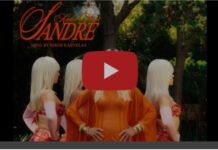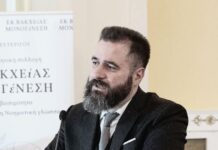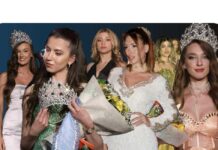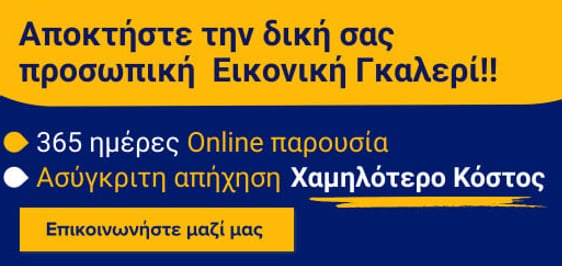Επιμέλεια: Εύα Πετροπούλου Λιανού
Dr. JERNAIL SINGH ANAND
President, International Academy of Ethics
The banner of truth has always been held aloft by writers, scholars and poets of yesteryears. We have seen scientists and scholars fighting the might of the royalty, and going to gallows for their beliefs. Truth is a relative term, and nobody can lay claim to Absolute Truth. Even religions, which have scriptures to pontificate on truth, fail to agree on a unanimous idea of truth. Men have been foxed so much by the elusive nature of truth that they prefer to suffice with its different versions. In fact, everyone, who does not agree with the accepted truth, invents his own truth. And this need was most acutely felt by the political establishment. The term post-truth which was first used in 2016 [and was regarded as word of the year] has come to signify that, contrary to established beliefs, truth is not singular, but it tends to be plural. There is no unitary truth, and people can invent what truth means for them. And if they are in power, they can force it down the throat of the resistless mass.
There is major disagreement and uncertainty concerning what counts as a reliable source of truth. According to Julian Baggini, for most of human history, there was some stable combination of trust in religious texts and leaders, learned experts and the
enduring folk wisdom called common sense. Now, it seems, virtually nothing is universally taken as an authority. This leaves us having to pick our own experts or simply to trust our guts.
Friedrich Nietzsche argues that humans create the concepts through which they define the good and the just, thereby replacing the concept of truth with the concept of value, and grounding reality in the human will and will to power. According to Nietzsche, all insights and ideas arise from a particular perspective. This means that there are many possible perspectives in which a truth or value judgment can be made. This amounts to declaring that there is no “true” way of seeing the world, but it does not necessarily mean that all perspectives are equally valid. Nietzschean perspectivism denies that a metaphysical objectivism is anything possible and asserts that there are no objective evaluations capable of transcending any cultural formation or subjective designations. This means that there are no objective facts and that understanding or knowledge of a thing in itself is not possible.
We are living in the era of virtual truth, an improvement upon Truth. Real truth is elusive, so we create virtual truth. Truth can be compared to meaning also. The meaning of a text is supposed to be eternally postponed. Meaning depends on several
factors. There is no objective reality governing the meaning, rather it is an individual’s private world. Just as meaning changes as the preceptor changes, and the time changes, in the same way, truth too is governed by these elements of time and space. If there is any finality, it rests only in the realm of the impossible.
PERCEPTION
From here, we can jump to the creation of a particular narrative, and the idea of perception in contemporary society. What is perception? It is tampered truth. Truth exists in an amorphous state. Moreover, as moments change, it keeps changing its perspectives. Politics is a game of perception. For this, governments try to create a particular narrative with the help of media. In a very rough sense, it can be called fake news, or media management. Media acts like a cosmetological surgeon who can change even the face of an individual. They change the face of events, inject a particular soul into them, and show up things which were best buried under the earth. If it is left to committed media, people are never going to see the face of truth. If in literary texts, meaning is eternally deferred, Truth in our society is for ever exiled. What we come across are Perceptions. Narratives. Make-
belief. And this division of truth is a very dangerous development of post-modern times.
Truth is one. It is indivisible. And truth finally wins. Honesty is the best policy. Truth prevails. I swear by the Holy Gita, that I shall speak the truth and nothing but the truth. It is not difficult to understand the irony implicit in these words. Who does not know the fate that truth meets in our society?
The Age of Truth was perhaps Treta or Dwapra, where people preferred to stick to truth. Gurbani refers to the Deathless God, whom it calls True. People attending the funeral march, are chanting: ‘Ram naam Sat hai’. It was Socrates who died for truth. Thereafter, people realized that it was no use dying for truth. The great Gurus of Punjab lived and died for the sake of Truth. And in their case, God represented the ultimate Truth. In religion, such objectivism is possible. But, nowadays, when things derive meaning and value from their relevance to street logic, shops sell every ware, except truth.
What happens to lovers of truth? They are living a single-track life, of no sensations, no thrills, no joy. Only hand to mouth. And those reporters who think they should report the truth, soon find themselves under the earth, with trees planted on their buried bodies.
If we look at the times we have left behind, when religion was a dominant power, people believed in God, we find that they believed in a settled world view. In their prayers, they would wish to live by truth. Perhaps, during those days, truth was not so bitter, in its taste, as we find it these days, in these times of post-truth.
FROM POETRY TO FICTION: A RISE OR A FALL?
Moreover, those were times of dramatic poetry. Poetry, in a way, deals with the eternal values of life, and it deals also with truth. Keats said: truth is beauty, and beauty truth. During those times, truth had a certain pull, and a value in the agrarian society which was slowly losing its pristine grandeur and turning over to technology. Let us look at the literary scene now. Poetry has vanished from the reckoning of the world. Read Truth instead of Poetry. We are living in a world which believes, not in truth, but its various versions, in narratives, in perceptions, or make-belief. Thus, we have diluted the idea of truth, and, it is no wonder now, we love fiction. This is the age of fiction. And what is fiction? It is entirely a concoction of one’s mind. Absolute artistry. And on the first page it is written: It is a work of fiction. There is nothing real in it. If at all it resembles anybody, it is merely coincidental. This I think is the starkest and darkest example of Post-Truth era, where you cannot believe anything that is being said without any conviction. You are in an uncertain state where things are being placed before you, and yet you are told not to believe in them, because they have no truth in them.
THE POST-TRUTH WORLD
It means the Post-Truth world is different from the created world, insofar as it is a manufactured one, articulated by an artificial vision from which God is absent. The world which believed in Truth also believed in beauty. The post-truth world neither values truth, nor beauty. We are living in a world which is denuded of its intrinsic values, its beauty, and its truth. Human life, it appears, has gained a lot of artificial beauty, but essentially, man has lost all honour and sense of shame. The only living graces in this universe are the earth, and the sky, whom man has not been able to convince and they still believe in their truth. Build anything on the earth, it will not sink. Raise any building to any heights, skies won’t complain. But if you break faith, and torture animals and cut down trees, if you pollute waters, and winds – in other words, if you play with elemental truth, elements will turn you into fiction. Let us not forget the cloudbursts. They are emblems of the bursting heart of nature.
Literature has to peel off the layers which cover and disfigure the intrinsic beauty of life. Literature is pitted against false narratives. Literature must know it has a higher pedestal in the scheme of things and it must not come down to the level of a commodity. Human lusts and passions are temporary engagements. Literature stands beyond all this, to address the essential and basic issues of mankind. And for now, it is to SAVE HIS TRUTH FROM BEING FRAMED, DIVIDED, AND DISCREDITED. Man is now a part of the turbulent flow. Only literature can save him from imminent death by water.
Author: Dr. Jernail Singh Anand is Founder President of The International Academy of Ethics, a think-tank of Poets, Philosophers, Thinkers, Scientists and Social Scientists. He is Professor Emeritus with the European Institute of the Roma Studies, Belgrade and Honorary Member of the Serbian Writers Association. Dr. Anand has authored 150 books which include 9 epics which are considered world classics. He has innovated the theory of Bio-text in critical theory. The Univ. of Neyshabur, Iran has conducted a Research Project on his Poetry comparing it with Iranian Poets, under Dr. Roghayeh Farsi. His works have been translated into 20 world languages.
Contact: [email protected]
https://en.wikipedia.org/wiki/Jernail_Singh_Anand
Http://universityofethics.org/ethicsacademy.co.in
Http://worldliterature.in


































